Kate Bowler: Hey. Just before we begin, I wanted to let you know that we have a free advent guide available on my website. And by that I mean we have an enormous, gorgeous, free, giant ebook thing if you want it. So it’s something to help us ground our days and hope and love this Christmas season. So if that’s something you want, go to Katebowler.com/advent and it’s all yours. One of the weird things about trying to change is that sometimes nobody else wants to. Not even a little bit at all. The holiday season could be a strange reminder of that because it’s that time again when we get together with the people who might know exactly what buttons to push, or topic to broach. That brings us right back to who we were as kids. For better or for worse, that uncle’s inappropriate Facebook posts or the in-laws passive aggression is just aggressive, at this point. Or a parent who never wants to talk about the real stuff, like their addiction, or the divorce, or how lonely anyone feels. We can find ourselves stuck in our histories, especially our family histories, and we might need a little boost to confront dysfunction, speak the truth, and find trusted people to know how to change. I’m Kate Bowler and today on Everything Happens, we’re going to look backward in order to move forward. Backward at our family dynamics of how we inherited stories of love and loss from our parents or grandparents or maybe even great grandparents. How sometimes generational divides make it difficult to express what we’re going through and how locating ourselves in the web of our families might actually give us a little permission to change. And my guest today is the perfect person to help us do just that. Julia Samuel is a British psychotherapist and over the last 30 years she has worked for the NHS and then in private practice and she is the author of Gorgeous and practical books like This Too Shall Pass, Grief Works and the one I am so excited to talk to her about today, Every Family Has a Story. Julia, my friend, thank you so much for doing this with me today.
Julia Samuel: I am so pleased to be seeing you. We forged a friendship in 30 minutes, but actually it was longer because I read your book that took like 3 hours. So it is funny how you can know someone from reading their works.
Kate: That is so true. Thinking through someone else’s brain is such a wonderful way to know someone. And you are someone with so many rich categories for thinking about the bigger stories that we carry. This new book you have is so wonderful and challenging and motivating and sort of horrifying because it. Well, is it it pushes me to think beyond therapy as a kind of solo act. Like, let me tell you about my story and whatever I think of everyone else. But your book looks not just at individuals, but families. And it made me imagine people as a web. Is that a is that a good metaphor or how do you imagine it?
Julia: I think it really is a good metaphor because, I mean, if we’re lucky, we are part of a family and we need family. They are the bedrock of our lives. When they drive us mad and when they’re amazing and celebrate us and when we really hate them, we need them most probably. And I think we’ve spent too long focusing on the individual and not enough about a web or a network. We need really lots of good relationships to thrive so that, you know, just leaning on ourselves isn’t enough, not even when times are good, but particularly when times are hard.
Kate: And that’s such a deeply American story. Just like an open field with an individual and all of his bootstraps. Like theres, there’s so many stories that we tell, especially in American culture, that celebrate that kind of hearty loneliness.
Julia: And it’s all about overcoming, isn’t it?
Kate: Yes.
Julia: Getting on your horse with your gun and your hat and and just going giddy-up. In English, giddy up, by the way, would be in quite posh voice, it would be kick on. Kick on.
Kate: Really?
Julia: Yeah. So it’s the same thing, but just keep going. Just keep going. Don’t ask for help. Don’t make a fuss. Don’t make me feel bad because your I can’t help you. Just glide past me so that I’m not, you know, demanded of or made to feel uncomfortable. But at the same time, you’re really lonely and chilly out there in that horse.
Kate: Yes, that’s right. I imagine the Canadian version would just be like a deep, awkward politeness, like just a small wave if you happen to be.
Julia: Like the queen when she went past.
Kate: Yes, that’s right. that’s right Yeah. If you’re going to start thinking of yourself as being part of that bigger story that you’re calling us to, like what’s the right posture to begin in? People say, you know, and then I discovered my parents were just people. And I imagine when they say that, that they are beginning to experience like maybe curiosity or there’s some kind of thing that cracks them open. But what kind of how does one begin? I suppose.
Julia: One of the ways in is to think about it with curiosity, like, you know, what I’m feeling and how I am and what I understand and the beliefs I hold. They didn’t start with me, like look up and look across, and look and see what has been passed down from generation to generation. And what am I holding that is no longer really mine with this idea that the difficulty or the pain of one generation it is, isn’t dealt with in that generation. The coping mechanisms or it’s even the genetics get passed down to the next generation until someone’s prepared to feel the pain. And so that we are the product of many stories and to the strapline in my book is how we inherit love and loss, how we deal with love, which is the thing that matters most in the world. But also that life is difficult and challenging and scary and maddening. We learn from the adults around us and they learned it from their adults. And so we need to kind of really begin to see the untold stories, the secrets, the lies. Because my one of my biggest things is that what we often do as a way of protecting other people or protecting our children or even protecting ourselves in the end becomes an armor that keeps other people out and you disconnected from yourself.
Kate: As a historian, I’m always like loathe to imagine that anything is new, but it does feel kind of modern right now. Revolutionary in some ways, to to talk about that kind of transparency across generations. Right. Like I imagine many of us have parents and grandparents where it can be very difficult to approach emotional subjects if if they have a very different set of emotional expectations. They endured war. They endured depressions. So is it so, first of all, is it modern to want this kind of transparency? And how do we navigate the sort of generational divides we might come up against if we wanted to talk this way?
Julia: I mean, not being as much of an historian as you, I don’t know. But what I imagine is that what we choose to hide and not talk about changes rather than kind of us having full transparency. So the Victorians, for instance, were really good at death. Queen Victoria was the poster woman for death. She wore black until she was, until she died. But they never talked about sex. Sex was completely disgusting in art and voice. You know, there’s a there’s a negotiation and a line you want to take of, you know, promiscuous honesty, which is cruelty. Like saying, you know, I hate that hat you’re wearing, I think it’s ugly, which is unnecessary. To important truths that we need to share so that we don’t carry them alone. But also, when we are suffering and normaly, people that suffer are hurting and not their best selves. That’s the awful way that were made us human beings. Like when you’re your kind of best happy self, you draw people towards you. But when you’re really had a terrible news or you’re really worried about something, you, you tend to close down a bit because you’re nervous, you’re angry, you’re kind of not your full open self. I mean, I think you are one of the rarities actually, because you seem to be able to expand your emotional witness out into the world, whatever’s going on. But I think you do. But I think it’s unusual that often we we’re kind of retreat and armor ourselves in whatever armor we use individually, which is very subjective. Or and we lash out. Like, if I’m really upset about something, I’m not kind and understanding and patient. I’m impatient and pretty horrible.
Kate: Yes. Yeah. It is, I remember hearing once, I think it was in like a history of childhood that one of the beautiful, surprising, I think spiritually useful but also evolutionarily useful things about childhood being the sort of generational reset button is that they begin to ask questions that we get told to no longer ask. And their curiosity kind of. And break through some of that calcified generational differences between us. Because thinking about the incredible, immense, devastating suffering of my grandparents would, war, tuberculosis, sanatoriums, foster care for my father. I mean, just devastation. And yet there when they narrate it, it was so. It was very tidy.
Julia: And I don’t think they had the luxury to feel. So they were of the generation, which is my parents generation, your grandparents, where they really all they could do was survive and get on. There wasn’t the knowledge, but it also wasn’t the emotional capacity in society. Everyone was grieving someone, everyone was fighting a war. And so they just had to survive and multiply and shut down what they felt and keep moving. I think what’s different now, and this, of course, isn’t for everyone by any means, because there are there is sort of desperate inequalities. But for those of us that are lucky enough, we do have the luxury to feel. We have the luxury to ask for help and to say that I don’t understand what’s going on in a way that just was not possible, even probably 35 years ago, 40 years ago.
Kate: Yeah. Your book has these incredible case studies of families learning to negotiate that dynamic. Can you give me an example of if someone who’s acute pain like required them to embed themselves and maybe they had to engage in a story that was their parents or grandparents?
Julia: So one of the stories was this amazing family where the father had died by suicide. He shot himself. It was called the Rossi family. And I met the mom and their three siblings and her three daughters who are siblings. And he had he was an Italian policeman and he had shot himself 40 years before. And the thing about trauma is that the residue of trauma is alive and present in your brain today as it was 40 years before. So his death had never been processed because as one of the things, one of the things that the mother, who is incredibly brave to do this therapy with her daughters, said, I never did ask, how was it for you? She never did ask for children because it was unbearable to know the answer. It’s to you can’t quite look at your children suffering when you can’t fix it. But of course it meant that she also then had to shut down because she had to go and earn money and she was traumatized and furious. They were now, 40 years later, challenging her and challenging themselves to deal with the trauma because it had developed lots of difficult behaviors. They had addiction problems and all sorts of behavioral problems in the men they sort of chose, not in other ways. But what happened was, as they were beginning to tell their story, they didn’t just have one narrative each. They had a collective narrative together. The mother’s story was included all three sisters, different stories, until they had a coherent narrative that made sense for themselves that so much had been hidden. And it was, I missed this or I did that wrong, or I felt guilty. And then when they had it all together, it allowed them to have their full kind of acceptance of it. And also, yeah, it allowed them to rebuild a relationship with their dad because a bit like your parents that had this narrative that dad killed himself for us and poor dad and wasn’t that great. And the sister said, everyone keeps saying how great dad was, but he shot himself and he was an alcoholic. So I mean, really?
Kate: Yeah, yeah.
Julia: Yeah. But but in naming the truth.
Kate: It really.
Julia: They could then they wrote in this wonderful letter, the three of them, because I said to them, you know, their love for the person never dies. They would like I can’t have a relationship with them I only have one photograph. And but every time they talked together and they wrote this such a beautiful letter to him, because, of course, he was still very much in them and part of them, and they could see themselves in him. They had his eyes or his sense of humor, and so they healed by telling painful truths, which is really what you talk about, is that by facing and not hiding from painful truths, we can’t fix the reality of what happened. But we can learn to connect and even love and allow ourselves.
Kate: Yeah,.
Julia: The freedom from it. It traps us and imprisons us when we don’t.
Kate: Yes. And that they could do that work. Rebuilding a story that they could then live inside. Must have been so powerful for them. Yeah. Especially when things are. When things are so far gone, I imagine it’s much easier just to say, I mean, that happened so long in the past. Let me tell you about the relationship I have thats driving me crazy now. But the hard excavation must have been very intense.
Julia: It was really intense, but it actually only took like eight sessions. And the thing that is so powerful is it renewed their relationship with their mother and it protected their children. So one of the things, if you want to kind of think about not passing down inherited trauma kind of deal with it in your lifetime because you will pass otherwise, you know, suicide is like a cluster bomb. It puts shards of agony in in everybody in different places. But by looking at the shards and naming them and having a clearer understanding, it means you don’t take the flinching and the injury of the shard to your own children.
Kate: And. What do you suggest for people who have incomplete stories and don’t have enough information to piece it together in a way that’s satisfying? Mystery is sort of can be a terrible maybe maybe we just have to grieve that mystery.
Julia: So, it’s so complex. I think what we don’t know can be the piece of the jigsaw that drives us completely mad. Where, where imagination can run riot and we can put in that limitless images, stories, blame, guilt all the what if’s, the universe can give you. And that can be utterly crazy making. And so the work that I do with people is you do have to grieve what you don’t know. Not that you can ever fix it, but you. The paradoxical theory of change, if you can at some point kind of know that you’re never going to know this and you letting your imagination kind of gauge what is driving you nuts, that you could maybe draw an image that represents it. Name it. You know, talk about the ending of the not knowing as part of your grieving. And then that can free you to begin to address what it is that, is the underlying is the main is the principal thing that’s happened to you because of the not knowing you can overtake the principal event.
Kate: When we’re trying to understand our bigger family web and maybe especially. Those in that system who have been unkind, maybe untrue, unfaithful. I mean, maybe the reason why we’re going to therapy in the first place. I wondered if I wonder if we could talk about the limits of this kind of empathy. Because I remember I had an interesting conversation with Tara Westover to remember her. She wrote that book, Educated. It’s this beautiful
Julia: I love that book, she was mormon? It is a religous cult
Kate: Yes, mormon survivalist. And she experienced a tremendous amount of physical and psychological abuse as a child. And we were talking about when people say of families, oh, they did their best. And I said, that drives me insane, as if we’ve sort of taken the survey. And we know that all 52 moms in this situation, quote, tried their best five on five, five stars. And and she said, oh, I actually I do say that. I say they tried their best and it was devastating. They tried their best and it was tragic. And I was frankly very moved by that. Like, how do we frame the the limits of empathy? maybe?
Julia: There’s the Winnicott term, which is, you know, is a parent is the good enough parent, which I think covers a lot of bases. And certainly with me as being a failing parent. But I think when you’ve had a really abusive, difficult childhood, in some ways the hate does you more harm and the blame because it gets inside you and it contaminates every other feeling that you have. So that if you can find a way of giving yourself a story. You know, the the emotions that we have, if you can allow yourself to feel the legitimate feelings and allow ourselves to be angry and upset and betrayed and all of those things, and also kind of find a way of saying, you know, they were given who they were, the history they had and what they knew. They did the best they could. And that best was devastating for me. Kind of does cover it because if you just keep blaming them and keep hating them, it keeps you trapped as well, keeps you imprisoned. I don’t know if the word is forgiveness, but I think it’s living with and allowing for its like the accommodation of both. There were some good bits, probably all of the bad bits and that you have to allow for it.
Kate: It sounds like there is a tremendous amount of possibility in learning to rewrite these stories.
Julia: You know, emotions are transmitters of information that run through our body to give us information, basically to know whether we’re safe or in danger and also whether we’re in a good place or not. And the actual pure emotion probably doesn’t last that long. It lasts about 90 seconds. But we can dig on that emotion
Kate: Really?
Julia: Apparently. I mean, but what we do with the emotion is we turn it into an attack against ourselves, of the other people, and then we do get trapped in it.
Kate: Yeah.
Julia: And then it becomes lots of other things. And often we do what I call have a shitty committee, then we’re failing because we feel so awful about it. And so this one, feeling of shame then becomes useless. I can’t do anything. Everyone hates me. So the story you tell yourself about the feeling is so much worse than the actual feeling. And the feeling is just information that if you could name it aloud through your body, acknowledge it, and breathe, then you have choices. Then you have choice like, okay, so I feel full of shame. Where’s this from? Well, what do I know about this? Is this a familiar trope? Is this you know, what’s going on? And then what do I need to do? What should I do? Do I just let it go? Do I need to learn from it?
Kate: I like the idea though, of, like a 90 second feeling. I’m really into that. Like, I mean, I bet it feels like 5 hours. If I had, like, a stopwatch, though, for, like, shame, it would be a wonderful thing.. To be like, I’m just gonna give myself this many seconds and then see.
Julia: It’s the information that we allow, the feelings to travel through our body and if we don’t pile stuff on top of them. Because, like, when I feel shame, I felt shame last week. And I went to bed feeling quite good about something I’d done, and then I woke up feeling felt ashamed that I’d done it all wrong, you know, awful feeling. So, you know, everybody else saw it. And I was late to recognize how useless I was. And and, you know, what I do with that is go into this awful feeling in my body, but I would literally do anything to avoid. Anything. So I, you know, I get busy, I start emailing, but all the time there’s this horrible contaminating kind of animal eating into me. But once I could really stop and pause and go. Ok, alright. Shame country, I hate you, fucker, but come through. There you go. There is a something that happens that changes because it’s not keep having to push up to tell me.
Kate: Yeah, yeah. That’s such. A good word to like that bubbling, pushing up, feeling. That’s exactly right. So I was just latching on to the temporariness that you’re describing with feeling emotional, feeling. That’s it’s a good. It’s a good reminder in thinking, especially about like tackling a complicated problem, a me problem, a family problem, it feels very uphill. It would be nice to remind myself that whatever comes up, it will not last forever. It’s hard to know how to frame generational trauma sometimes for that reason, because it feels sort of like someone just told you that your backpack was full of rocks. And you thought, You gotta just, thought it who was your purse for the day?
Julia: I mean, like with all of these things, it’s your mindset, isn’t it? It’s like you’ve been walking around ignorantly carrying rocks, like you didn’t know why you felt so heavy and why your shoulders hurt and why certain things just always get the beejeezus out of you. And then suddenly you realize that your grandfather died by suicide and it was never told, and that all these coping behaviors done to cover it up and the that’s part of it say, oh, those aren’t my rocks. Huh? Hang on. I can get rid of some of those rocks. They’re not mine. Let’s take them off. I mean, don’t think it’s ever as simple as that? But I think it can really help. There isn’t something wrong with you. This isn’t just you. That we are all part of something in carrying our stuff and other people’s stuff. And we need people to help us unload. And also we need to know the truth as much as we can ever know.
Kate: Yes.
Julia: And one of the truth is that not everything happens for a reason. Life is effing random. I mean, it is random. It happens for no reason. But we can ever make sense of. That we can ever give ourselves a proper reason. It just does happen out of the blue randomly. And sometimes it’s one person lots of terrible things. Sometimes only good things happen to some good people, for which I can’t really fully understand either, to be absolutely honest all of it. You know, you look at these family sometimes I look at other families and I kind of think, oh, how come that is literally nothing as far as I know that is breaking your day and I love them and also.. Like HOW Come?
Kate: Exactly. Yes. Meanwhile, I’m busy putting terrible things in the coherence machine and inventing a story that never flatters me about why it’s happening. Yes. It is.
Julia: But your honesty does flatter to you because honesty shines a light, right? And lights are illuminating a lights spring glow. And they bring people. And that’s what you do. You gather because of your honesty and your humility with your honesty, to say hard things and let yourself feel hard things. Other people can then face their own and look at their own and they see you can see how you do. It is true. It’s it’s truly an incredible gift.
Kate: That’s so nice. But the thing, what you wrote about the relationships that heal us made complete sense to me of how the last few years have gone. Only when I practiced being honest that I could get over the loneliness. And then the and solving loneliness to me has been the biggest. I mean, there being no solution to almost anything but but at least like a beautiful salve to the worst parts of being a person. You wrote this absolutely gorgeous moving thing about like it only takes one person. Can you tell me more about that?
Julia: Well, I just think, you know, the definition of being loved is being known, known as you are on the inside. And how you feel yourself to be with all of you frailties and fault lines and strengths and great capacities and brilliance. I think we can ignore good things as well, but they need to be allowed and that when someone fully sees you with all of that and you known, that is what love is and that they don’t turn away and they don’t try to squish you down. You don’t big you up. Or when you’re looked in the eye and known and loved for that is an amazing thing. And I you know, one person is really enough. But ideally, we do want a bit of a village. You know, we want nine.
Kate: More is better. More is more is better. Yeah.
Julia: And that’s what was so awful about the pandemic was that people who suffered suffered more in the pandemic because of that isolation. Yeah. I mean and that that really caused real harm, I think real psychological harm to to millions of people.
Kate: Yeah, that’s right. The thinning of all these things that hold us up, the cutting of all of our puppet strings. You write very movingly about a family who is trying to say goodbye. It was a family trying to say goodbye in the impossibility of losing a parent with cancer. And you were walking them to the edge of a difficult grief in an impossible moment of pandemic isolation. How did you help them live inside of a story that was going to be and feel incomplete in such a big way?
Julia: Yeah, I think he’s still alive, by the way. So he’s.
Kate: Oh, really? Yeah.
Julia: I think what I offered was the space for him and them, being a third party, you know. In fact, I was like the sixth person. But being someone who’s outside the family, I think that there is something about having a witness who isn’t emotionally invested with you. Hmm. That is a it’s like a holding power that allows them then to have very difficult conversations where they could hear each other because they had me to kind of keep them safe or to balance them. They weren’t responsible for each other’s distress or trying to protect each other from the pain that they were facing. And I think in voicing their fear, they were also very clearly voicing their love. And that for the for the dad is what mattered most. And that really supported him. He said, this is the worst time in my life, but also the best time in my life. That strange kind of duality. Because he really knew he was at.
Kate: That’s such a that’s such a beautiful word for the person who feels like they are the bomb that goes off. They are the one who is bringing the trauma in the front door. And and nothing can solve it.
Julia: How do you manage it?
Kate: I remember trying to ask my dad if. You know, parents have this overwhelming desire. It’s like the first thing on their mind. If they see their kid in pain. How can I take this on to me? Like, how can I just absorb this? I remember how much work I was doing in trying to wrap things up. It was just. It was such a rough time that it just kept going. It was like the first two years of endless. You know, almost dying, almost, almost, almost, almost all the time. And and. So I was I was kind of caught in that push pull feeling where I kept trying to sort of, like, pump the brakes for them, give everybody closure before. I was done living and remember the first time I lost it.
Julia: To protect them in some way.
Kate: Yeah. Then I just had some ugly, terrible fight with somebody at one point. My sister and I, and I was like, Oh, I’m so sorry. I’m just. I’m so sorry. And my dad said, Oh hun, I would so much rather you than the memory of you. And what I heard in that was I would so much rather the terrible complexity than the abstract perfection. And that gave me a lot of permission not to. It’s up to sort of be in pain politely, but to just let the try to let the weight of what I was and was going through to be something that more than I would have to carry. Yeah. Yeah.
Julia: And that in trying to protect them, you would also exclude yourself and each other. And there’d be that presence of absence even when you were alive. So it’s it’s better to be a messy fighting person who’s real. I mean, I remember telling my daughter.
Kate: Yeah.
Julia: My daughter had cancer. And, you know, we we had some very difficult conversations when she was so angry with me at times because I was trying to fix stuff or interfere. And she’s fought, you know, she was 38, but it was like, I want to go to the nursery teacher and sort out someone being mean to her. And I was trying to sort out doctors or. And, yeah, that wasn’t the right thing to do. But, you know. But not our best self, but not even that. It’s not not that’s the wrong word. It’s really painful and difficult when you really love someone.
Kate: There’s an ongoingness to love and pain, which just doesn’t really lend itself to knowing exactly what to do.
Julia: It’s a risky business right.
Kate: Yes, yes. Yes.
Julia: And that whole idea of being a soft skill is not. It’s really, really hard. And it is the only thing that matters, it’s the best medicine. Right. But it is not so scary. It requires. Yes. Unbelievable. Endurance, patience, fury, rage. You know. Because where you feel most you feel most. So if you have joy, one end of the bandwidth of love, you’re going to feel fury as well. You know, it’s wide it’s as big as a yes you get.
Kate: When you write. We only fix what we face. It makes me think you are a a source of deep courage, who for especially for those of us although these many of us. Who are not exactly sure how to find a richer story that includes our family to help ease the burden of whatever going through. So thank you, Julia. You are you are a source of tremendous wisdom to me. And I am so glad that I met you.
Julia: I am so glad I met you. I loved our conversation and your work and all that you’re doing. And I really take my hat off to you. You’re amazing.
Kate: Thank you. You might be still listening and thinking to yourself, Yes, Kate, this sounds great. Must be nice. Except what if we never get the apologies we deserve or the acknowledgment we need, or the relationships that we hoped for? This community knows all too well what other people forget that sometimes we don’t get the happy endings we hoped for or that we worked for. Sometimes other people just choose not to change. There’s a theme, though, in Julia’s book I thought you might really like. It’s about how we need one safe person, just one, one person in our lives. They may be related to us or not, but that person can help us adapt to the traumas we’ve experienced. We need one person who we can trust to tell us the truth, to be reliable narrators of our stories, who can help us see it clearly and know we are loved, loved, loved regardless. Because you, in all your actual problems and actual pain, are far better than any idealized version of you. And maybe that is the exact honesty that might offer us and our families the freedom we long for. I wanted to close today’s episode with a blessing from our very new book of Blessings. It’s called The Lives We Actually Have, and the book comes out in February. So if you want to preorder a copy, the link is in the show notes or at Katebowler.com/blessingsbook. And that’s exactly about what we’re talking about today. It’s a blessing for when your family disappoints you. God, I am angry and hurt and so incredibly sad. The very people who are supposed to love me and know me best have let me down. I don’t know if I’ll be able to let this go or find a way forward. I’m losing my sense of home and the reality of it fills me with a kind of fear. However big, however small, this pain always feels unforgiveable. I know they’re only human. Really. I know. But their mistakes feel like they echo through me and they strike a painful chord that rings on and on. And I feel convinced all at once that I am not loved, not known, not safe. I feel small all over again. So bless me, God, when tears prick at my eyes and I feel lost to myself. Bring me home. Remind me of the places you’ve brought me. The person I’ve become. When I feel your light and peace. Forgive them for me when I can’t. And send some grace for this moment. To keep my heart from breaking. Or my temper from rising. Or any sentence starting with you always. You remember me when I am a stranger to myself and an outsider at my own address. All right, my loves. Bless you. May you find your safe person and find some grace for yourself and others as we carry our stories of love and loss and disappointment together. See you soon.
Kate Bowler: A really special thank you to our generous partners who make this work possible. Lilly Endowment. The Duke Endowment. Duke Divinity School and Leadership. Education. And to my wonderful team. Jessica Richie. Harriet Putnam, Gwen Hegginbotham, Brenda Thompson, Keith Weston, Jeb and Sammy. Thank you. And I would love to hear what you thought about this episode. Would you do me a favor and leave a review on Apple Podcasts? It really, really means a lot to us when we get to hear what we do well and also might even do better. You can also leave us a voicemail and who knows? We might even be able to use your voice on the air. Call us at 919-322-8731. All right, lovelies. I’ll talk to you next week. But in the meantime, come find me online at Kate C Bowler. This is everything happens with me. Kate Bowler.
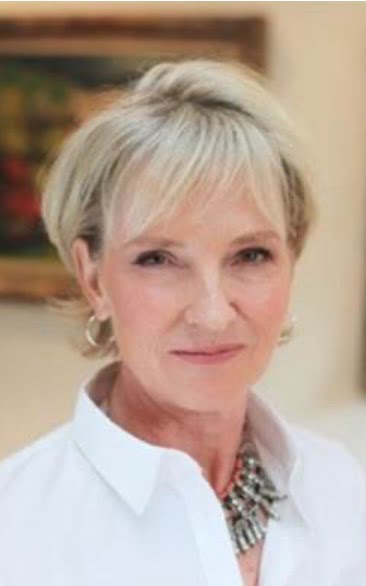

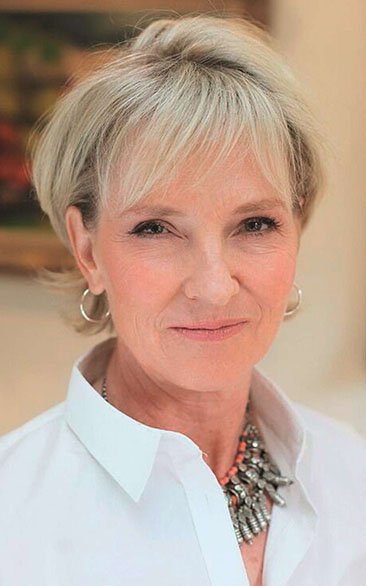
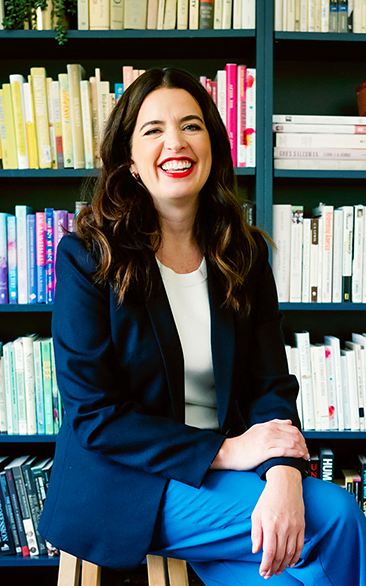








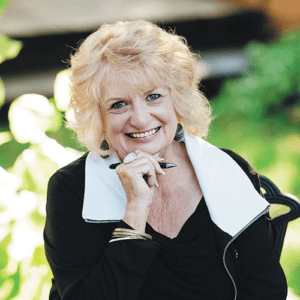
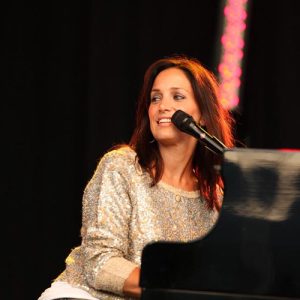
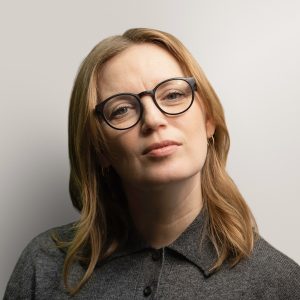
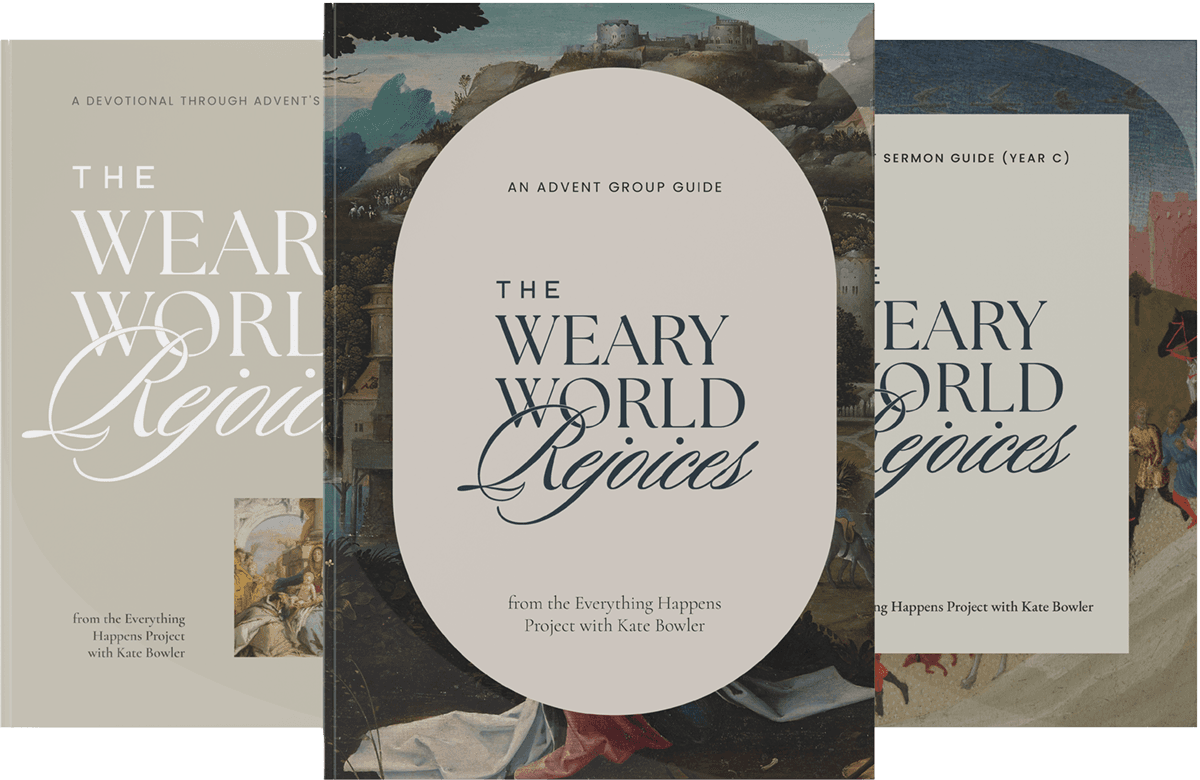
Leave a Reply